Coronavirus: Adapting to the 'new normal' amid a pandemic
- Published
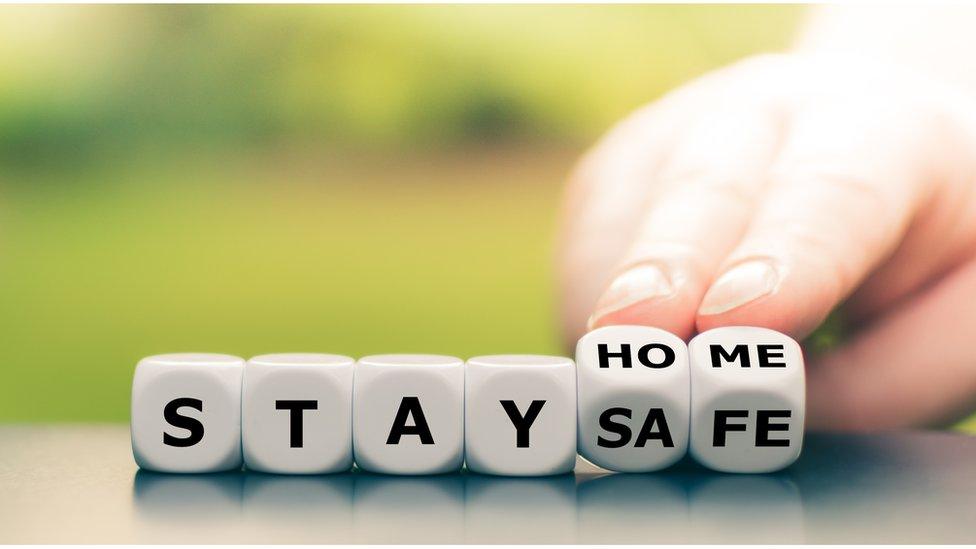
People across Northern Ireland are adjusting to a "new normal".
The unprecedented social distancing measures announced by the government have changed life beyond recognition.
Bars, cafes and restaurants are closed, we're allowed out of the house to stock up on groceries - albeit infrequently - and we're only allowed one form of exercise outdoors a day.
So how are people coping with this new way of living?
'I'm not hankering after the outside world'
Harry McDaid, 67, from Londonderry, must self-isolate for 12 weeks because his immune system has been compromised by cancer.
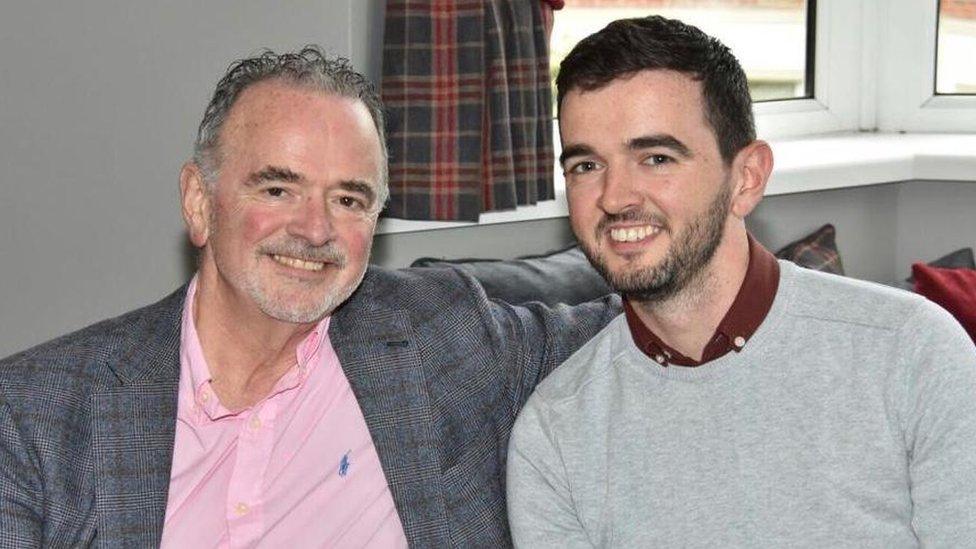
Harry McDaid, pictured with his son Sean, says his cancer diagnosis had conditioned him for 'big shocks' like the coronavirus crisis
He says his philosophy since he was diagnosed six years ago was to surround himself with optimistic people, which he would continue to do remotely during the lockdown.
He added that seven weeks of imposed self-isolation following a bone marrow transplant had given him an idea of what to expect.
"It is about remaining positive. All of these things in life are very manageable," he says.
Harry says his former job at a national bank and his cancer diagnosis had conditioned him for "big shocks" like the government request to stay at home.
"I'm a very good sleeper, I don't do worry terribly well.
"I'm not hankering after the outside world," he says.
"This will prepare me for retirement."
Harry says he was starting to pay better attention to the beauty of nature as spring arrives, despite not knowing "one tree from another".
"This is an opportunity to appreciate that," he says.
"There's an awful lot of living to be done, even when you're confined to barracks."
'Animals keep me sane'
Sharon Madine has wound down her riding school in Saul, County Down.
She says she was determined to be positive and continue to exercise her horses as much as possible for them to be ready when life returns to normal.
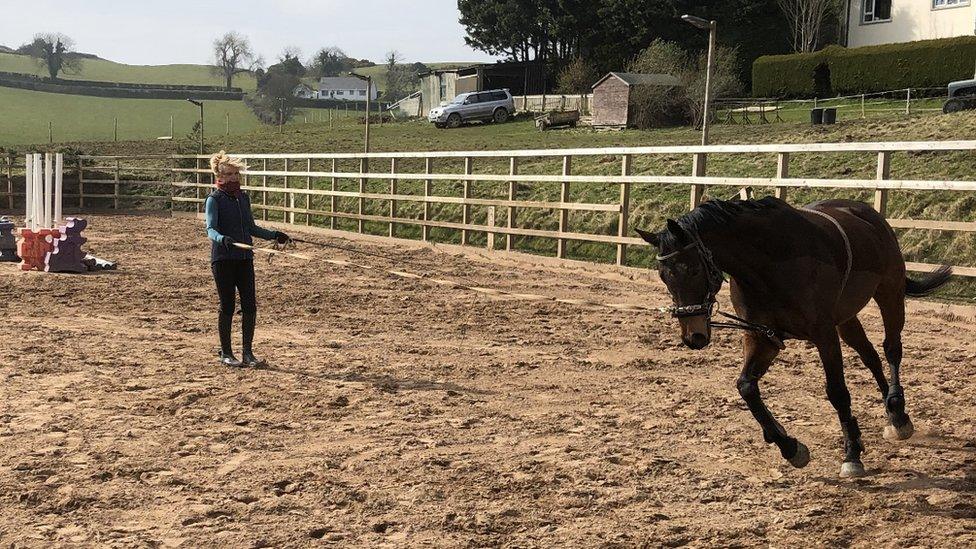
Sharon Madine has plenty to keep her busy
"The animals will help keep me sane during this. They will help me get out of bed in the morning," she says.
"I can go to the stable and put the radio on and it will almost be as like life is normal.
"Even mucking out lifts your mood."
Jackie McElmurry, who runs a food takeaway in Omagh, County Tyrone, is one of many who have turned their energy towards helping vulnerable people in their communities.
She donated 50 fish suppers to vulnerable and isolated people, which were delivered by volunteers.
"People have always been good to me, supporting my business, so in these difficult times it was the least I could have done to give back and help people facing massive uncertainty."
Home-schooling challenges
Thousands of families have been thrust into home-schooling due to the crisis.
Helen Hanna, a geography teacher and mother of three from Belfast, was one of many teachers who have offered online help to other parents.
"It will have its challenges, but it is what it is," she says.
"Many families will be able to afford tutors or have friends who will help out remotely, we need to focus on the more vulnerable who might not have that same support system."
It is not just children who will be learning, as retired teachers, Ruth McCreadie, 67, and her husband Peter, 68, from Bangor have decided to teach themselves French during the lockdown.
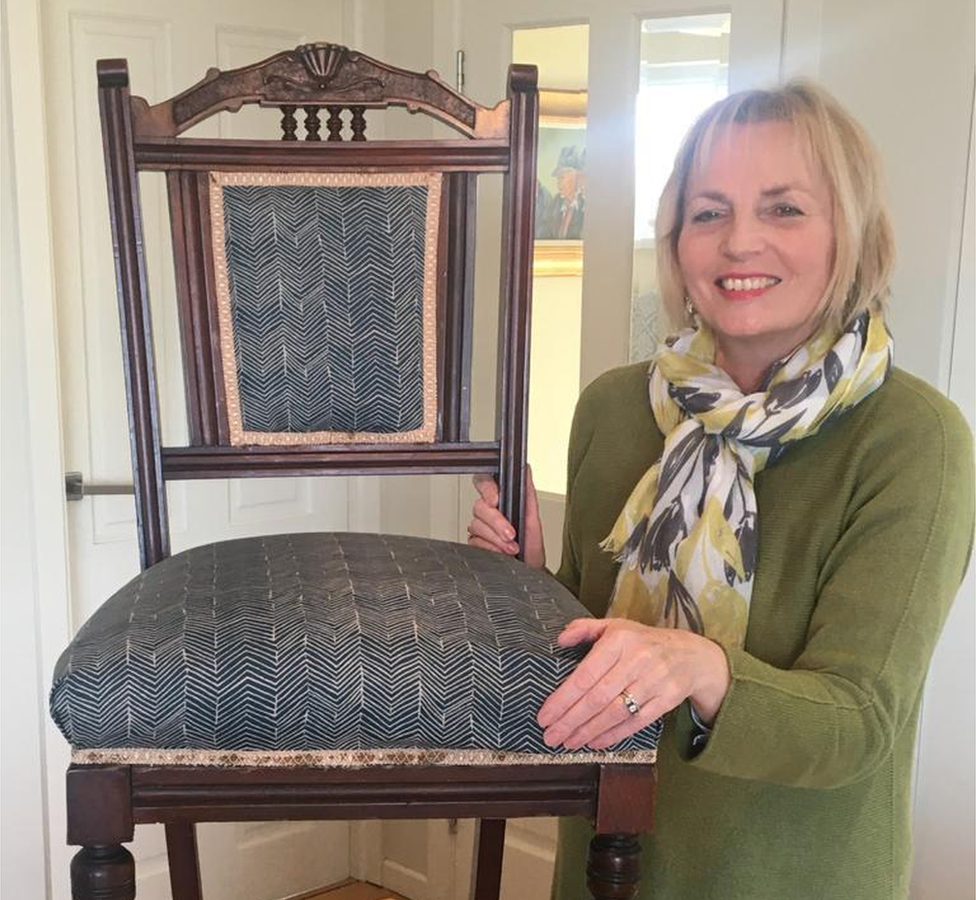
Ruth McCreadie hopes to do more upcycling, such as this chair
Ruth says that despite being married for 40 years, they were not used to "living in each other's pockets".
She hopes the colourful lessons will add structure to their day.
Ruth, who will also do some upcycling while housebound, says they both felt they would like to help others during the crisis, but are of an age where they might be considered at risk.
"We are the lucky ones. We are well, we have enough food and we live near the beach where we can go for a walk, but you still have that sense of doom in your chest," she says.
For some, lockdown is not that different from usual life.
Jen Banks, from Downpatrick, County Down, says her family's "normal life circle" was smaller than most, as her three-year-old son Lorcán has cystic fibrosis and had to maintain a distance from people who were unwell.
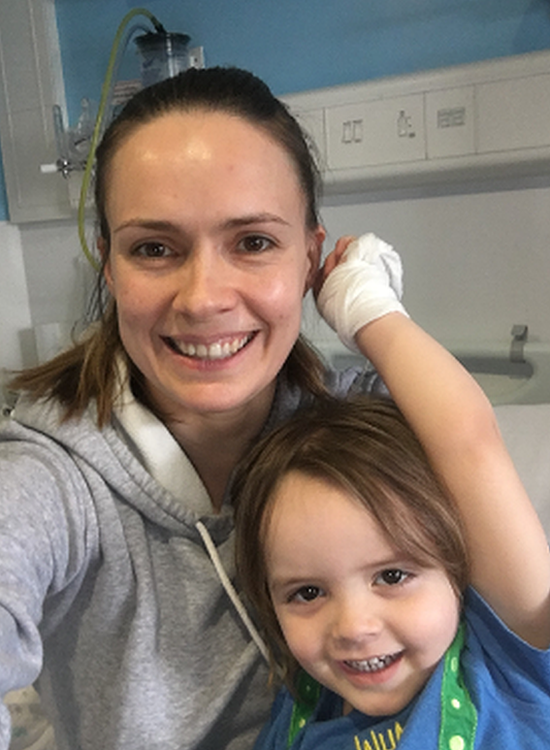
Jen Banks and son Lorcán have been spending a lot of time in hospital

She was in isolation with Lorcán in the Royal Victoria Hospital for Sick Children for a fortnight recently, where he was treated for a chest infection.
She says she was relieved they returned home to "lockdown".
"Lorcán wasn't allowed to see his little sister for two weeks so actually going home to our own house where our family can be together again was great," she says.
"We are just going to do our best. It reminds me of when he was a newborn and had to be isolated because of his condition. Those waves of panic have come over me.
"In many ways we are lucky as the decision to self-isolate has been taken away from us. We must do it for Lorcán."
Jen says recent isolation has also made her appreciate her natural surroundings.
"There is a beautiful willow tree in front of the children's hospital and I never noticed it until now."